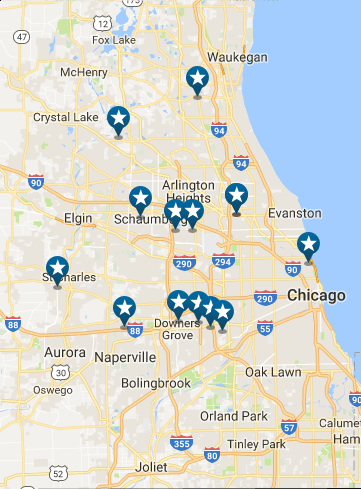Clinical Trials Information for Your Patients
Clinical trials are research studies involving people. They test ways to treat and prevent cancer. All of today’s standard cancer treatments are a result of clinical trials completed many years ago. Your patients will likely have many questions about clinical trials. Here are some answers:
Who Organizes a Clinical Trial?
Organizations or individuals looking for better treatments for cancer or new ways to prevent or detect cancer may sponsor clinical trials. Individual doctors at cancer centers or other medical institutions can also conduct trials.
The National Cancer Institute sponsors numerous clinical trials covering a variety of cancers. The Radiation Therapy Oncology Group (RTOG) focuses on radiation oncology clinical trials. Other sponsors include drug makers, technology companies and groups like the American Cancer Society.
Each trial has a person in charge, usually a doctor, who is called the protocol chair or principal investigator (also called the PI).
How Are Clinical Trials Conducted?
Clinical trials testing new treatments are carried out in phases.
Phase I: Is the Treatment Safe?
As the first step in testing the research, doctors gather information about the side effects of the treatment and decide on a safe dose. Only a few patients in a few places take part in a Phase I trial.
Phase II: Does the Treatment Work?
In this step, doctors test the treatment to see how well it works. Usually fewer than 100 patients are involved in Phase II trials.
Phase III: Is the Treatment Better?
Phase III trials compare the new treatment against the current standard therapy and randomly assign patients into one of the two groups. Many people from all over the country take part in these trials.
Phase IV: Are There Better Ways to Use the Treatment?
In this final step, treatments are tested to make sure they are safe and work well over a long period of time. This phase most often occurs once the new treatment has been approved for standard use. Anywhere from several hundred to several thousand people are enrolled in a Phase IV trial.
Where Are Clinical Trials Conducted?
Clinical trials are available through oncologists everywhere � not just in major cities or in large hospitals. Clinical trials take place in teaching hospitals, outpatient clinics, community hospitals and doctors’ offices.
What Are the Types of Clinical Trials?
Prevention
These trials test new approaches that doctors believe may reduce your chance of developing cancer. Most involve healthy people who have not had cancer. Some studies are conducted with people who have had cancer in the past to try to find ways to prevent second cancers.
Screening
Since cancer is often easier to cure when it is found early, screening trials test methods to better detect cancer, especially in the early stages. These studies also help find out whether finding cancer before it causes symptoms will lessen a patient’s chances of dying from the disease.
Diagnostic
Diagnostic trials help answer whether or not there are new approaches that could be used to find certain types of cancer and at an earlier stage.
Treatment
The purpose of these trials is to find out if a new treatment or technique is better than the standard treatment. This can include new approaches to radiation therapy, new drugs, vaccines and different combinations of treatment.
Supportive Care/Quality of Life
These studies explore ways to improve the comfort and quality of life of people with cancer or survivors. These trials also study ways to better combat the side effects of some treatments.
Genetics Studies
These are generally done with another clinical trial and focus on how genetic makeup can affect detection, diagnosis or response to cancer treatment.
Who Can Participate in a Clinical Trial?
Each clinical trial calls for certain criteria that a patient must meet to be included in that trial. Your age, gender, medical history, current health, what type and stage of cancer all factor into eligibility. It is important to remember that clinical trials are completely voluntary. Patients can leave a trial at any time.
What Is Informed Consent?
Informed consent is the process by which you agree to take part in a clinical trial after receiving information about the purpose of the study, the treatment that will be given, the tests that will be taken and the risks and benefits of treatment. You must sign a written consent form before being enrolled into a clinical trial. This form says that you understand the study and agree to take part.
What Are the Benefits?
Although there are risks with any treatment, there are also many benefits of taking part in a clinical trial. You gain access to promising new treatments that are not available outside of the clinical trial setting. The treatment being studied may be better than the standard approach. A research team made up of doctors and other health professionals follows you very closely. You may be the first to benefit from the new method. Results from the study may help others in the future.
What Are the Risks?
Before you take part in a clinical trial, talk to your doctor about the risks involved with your treatment. New drugs or treatments may not be any better than the standard care they are being compared to. New treatments may have side effects that are unexpected. If you are in a randomized trial, you will not be able to choose if you are getting the new treatment or the standard approach. Health insurance may not cover all your costs. You may also be required to make more frequent visits to the doctor.
Questions to Ask Your Doctor
Before joining a clinical trial, you may want to ask your doctor these questions about the study and your treatment:
What are you trying to learn from the study?
What do doctors know already about the treatments being studied?
What treatments and tests will I get during this trial?
Who will be in charge of my care during the study?
What are the differences between what I would get on this treatment and the standard treatment you would recommend?
What are the benefits and risks?
How will this affect my daily life?
How long does the study last?
What will I be asked to pay?
How will I know if the study was successful?
How Can I Join a Clinical Trial?
If you are interested in joining a clinical trial, talk to your doctor. He or she can help you find out if a trial is right for you. The National Cancer Institute can give you information on current trials. Call 1-800-4-CANCER or visit www.cancer.gov to learn more.
Who Pays for a Clinical Trial?
Before taking part in a clinical trial, it’s important to ask what your costs will be. In some cases, the sponsor of the study (such as the government, drug makers or technology companies) will provide the new treatment at no cost and pay for any special testing or extra doctor visits. Some sponsors may pay more than this, such as covering travel time and mileage expenses. However, other trials may pay very little of your treatment costs.
If you have private insurance, check with your provider before you begin treatment. It may be willing to pay for some or all of the costs of your treatment, depending on the type of trial. Medicare will pay for the routine costs for some government sponsored clinical trials. Ask your doctor or call your local Medicare provider to find out what Medicare will pay for your treatment.
Facts About Clinical Trials
More than 25,000 cancer patients enroll each year in clinical trials through the National Cancer Institute. Many more patients are enrolled in clinical trials sponsored by other groups. About 60 percent of the adults enrolled in clinical trials are women. Lung, breast, prostate and colon cancers have the highest number of clinical trials dedicated to them. Only a small percentage of all cancer patients enroll in clinical trials. Their participation may benefit them as well as future cancer patients.







